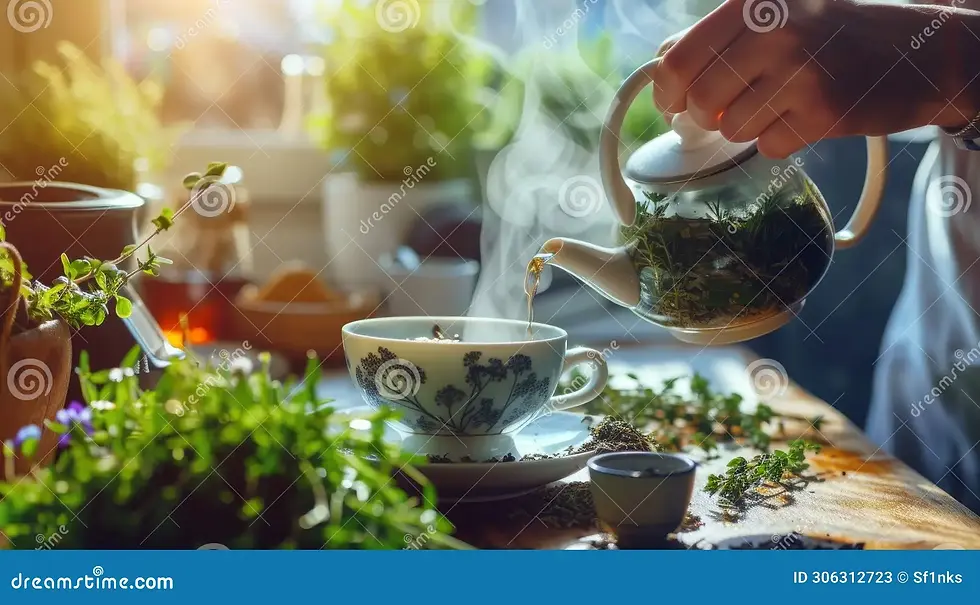How Can Traditional Chinese Medicine Help Alleviate Stress and Anxiety?
- Jenny Swan
- Mar 10, 2025
- 3 min read
In today’s fast-paced world, stress and anxiety have become common companions for many. As pressures mount from various directions—work, personal life, and even societal expectations—finding effective ways to manage these feelings is paramount. Among the myriad of solutions available, natural Chinese herbal remedies are gaining recognition for their holistic approach to well-being. This blog post will explore several key herbal remedies and their benefits, providing insights into how they can help alleviate stress and anxiety.
Understanding Stress and Anxiety
Stress and anxiety are natural responses to perceived threats or challenges. However, when these feelings become chronic, they can lead to serious health problems, both mental and physical. It’s important to address these issues through sustainable methods rather than simply masking them with medication.
Natural remedies have been used for centuries in various cultures, particularly in Traditional Chinese Medicine (TCM). TCM emphasizes balance and harmony within the body, using natural ingredients that target both physical and emotional well-being.
Common Chinese Herbs for Stress and Anxiety
1. Adaptogenic Herbs: Ginseng
Ginseng is one of the most renowned adaptogenic herbs in TCM. It helps the body adapt to stress by regulating the release of stress hormones. Studies suggest that ginseng may enhance mood, promote energy, and improve cognitive functions, making it an excellent choice for those dealing with anxiety.

With its invigorating properties, ginseng can be consumed in various forms—teas, capsules, or even raw. Regular intake, under guidance, can support overall resilience to stressful situations.
2. Calming Herbs: Lavender
Lavender is widely recognized for its calming effects. In TCM, it is often used to soothe the mind and calm the spirit, making it a favorable option for anxiety relief. The scent of lavender can trigger the relaxation response in the brain, leading to reduced heart rate and lower blood pressure.

Lavender can be utilized in multiple ways: essential oils for aromatherapy, herbal teas, or even added to baths for a soothing experience. Incorporating lavender into your routine may enhance your emotional resilience over time.
3. Mood-Boosting Herbs: Ashwagandha
While ashwagandha is not strictly a traditional Chinese herb, it has been gaining popularity in holistic practices worldwide, including TCM. Known for its ability to reduce cortisol levels, ashwagandha can help mitigate the physical effects of stress, thereby improving your mood and energy levels.
Utilizing ashwagandha supplements or powders mixed with warm milk or smoothies can offer a gentle yet potent boost against stress and anxiety.
The Philosophy Behind TCM and Stress Relief
Traditional Chinese Medicine operates on the principle of balance between the body’s internal systems. Stress is often viewed as a blockage of Qi (pronounced “chee”), which is the vital energy flowing through the body. By using herbal remedies and other techniques such as acupuncture and tai chi, TCM seeks to restore this balance.
Each individual may respond differently to various herbs, which is why it’s essential to tailor treatments according to one’s specific needs and constitution. Working with a qualified TCM practitioner can provide personalized insights and recommendations.
Lifestyle Recommendations to Enhance Herbal Effects
While natural herbal remedies can be incredibly effective, they work best when integrated into a holistic lifestyle approach. Here are some lifestyle changes that can amplify the benefits of herbal treatments:
Mindfulness Practices: Incorporating mindfulness meditation or yoga can greatly reduce the overall perception of stress.
Regular Exercise: Physical activity, even in moderate forms like walking, can boost endorphins and improve mental clarity.
Nutrition: A balanced diet rich in whole foods supports overall health and can mitigate stress responses in the body.
Adequate Rest: Quality sleep is crucial for recovery and stress management, as it allows the body to repair and regenerate.
The Imperative of Seeking Professional Guidance
Before beginning any herbal treatment, it’s critical to consult with a healthcare provider or a qualified practitioner of Traditional Chinese Medicine. Each person's health circumstances are unique, and professionals can help navigate potential interactions with medications and tailor herbal therapies for individual needs.
In conclusion, natural Chinese herbal remedies represent a powerful avenue for addressing stress and anxiety. Herbs like ginseng, lavender, and ashwagandha offer not just symptomatic relief but also promote an overarching sense of well-being when incorporated thoughtfully into a balanced lifestyle.
Conclusion
Exploring traditional herbal remedies opens up a world of natural options for managing stress and anxiety. Emphasizing balance, modern lifestyles can greatly benefit from TCM principles and practices. By understanding how these herbs work and implementing them in conjunction with mindful living, individuals can foster a healthier, more resilient approach to managing life’s challenges.
Harnessing the wisdom of ancient traditions, we can find effective tools to navigate the complexities of modern living, paving the way for a more harmonious existence.
With the insights provided in this article, readers are encouraged to delve into the world of natural remedies and cultivate their unique paths towards reduced stress and enhanced well-being.



